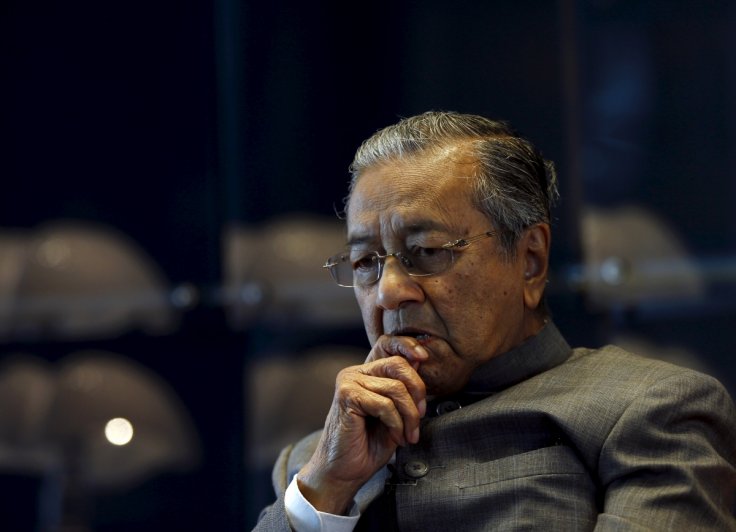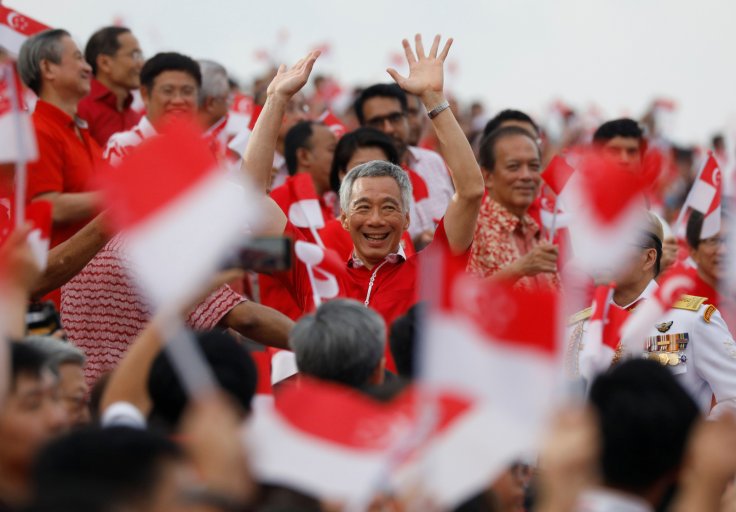Former Malaysia's Prime Minister Mahathir bin Mohamad hopes Singapore can experience a change in power in its next general election, scheduled for July 10 as his country did in 2018.
But Mahathir, who has rifts with Singapore for long, wants a change in the ruling party of the city-state that could help ease several disputes with his country Malaysia. "Well, we hope there is a change. But knowing Singapore, they are not very cooperative. They don't want to change anything," he told Asia Times in an interview.
The ruling People Action Party (PAP) has been in power since Singapore's independence from Malaysia in 1965 and has won every election with a majority. The current government, led by Lee Hsien Loong, son of the first PM Lee Kuan Yew, will contest for his fourth term and a change in stance isn't expected until he turns 70 in two years' time. Moreover, PAP still enjoys majority which isn't expected to change in the 2020 General Election.
Old Animosity
Dr Mahathir, who has served five full terms as the PM of Malaysia with United Malays National Organization, guided the coalition of opposition parties, Malaysian United Indigenous Party, to victory, ending UMNO's 61-year rule. But he resigned from his post two years into his sixth term amid the country's political crisis.
However, during his tenure, he never maintained a cordial relationship with Singapore and its ruling PAP leaders. The differences with Singapore over various topics including border, water among others only grew.

But he now hopes if a new party comes into power in the city-state, animosity might change. Mahathir, especially noted that Lee Hsien Yang, PM Lee's estranged brother, with his Progress Singapore Party, might cause a change in the future.
"Everything is to their advantage, so they want to keep it that way. I do hope the brother (Yang), who has differences with his elder brother (Loong), would have a different attitude towards Malaysia," said Mahathir, who also clashed with Lee brother's father Lee Kuan Yew over several matters in the past.
Coronavirus to Affect Poll?
While Mahathir may have a personal grudge over Singapore, many in the ASEAN and Southeast Asia have voiced their opinions against the general election, especially during the Coronavirus pandemic. While the incumbent PAP government wanted a fresh mandate to tackle the aftermath of the pandemic and economic challenges, ASEAN Parliamentarians for Human Rights (APHR) questioned the powers of the country's PM on the electoral process.
In their report, "In Singapore, an Already Unfair Vote Undermined by COVID-19", released on June 18, APHR said structural flaws in the Republic's election process prevent a fair poll that could see a change.

"There's a reason that the ruling PAP has won every election since Singapore's self-governance – the entire process is heavily stacked in its favour," Teddy Baguilat Jr, APHR's Executive Director said. "The only way the vote can be regarded as free and fair is if urgent and genuine structural and legal reforms are implemented, including reforming electoral bodies to ensure they are truly independent, and dropping all ongoing politically-motivated charges against opposition candidates," he added.
As the election will be held During the COVID-19 pandemic, physical rallies have been replaced with virtual meets and online ads. Baguilat Jr, the former Philippine Member of Parliament, believes that it will curtail the opposition parties' capabilities in reaching the voters.
"Opposition candidates face insurmountable challenges not only to run in elections but also for their message to reach eligible voters, due to a short campaigning period and strict media restrictions. In addition, authorities continue to use draconian laws to target political opponents and muzzle other critical voices, resulting in a limited civic space," he said.
However, Singapore's Election Department has promised to uphold the constitution and conduct a free and fair election despite the challenges posed by COVID-19.








